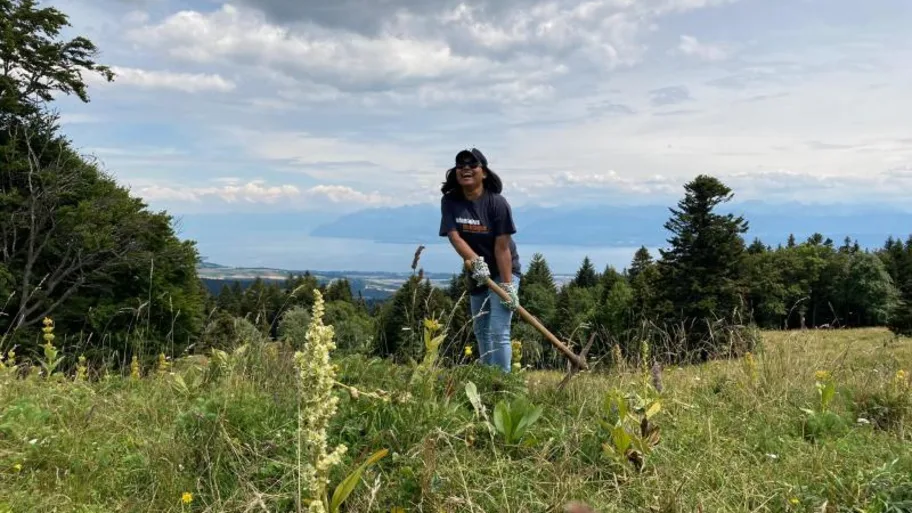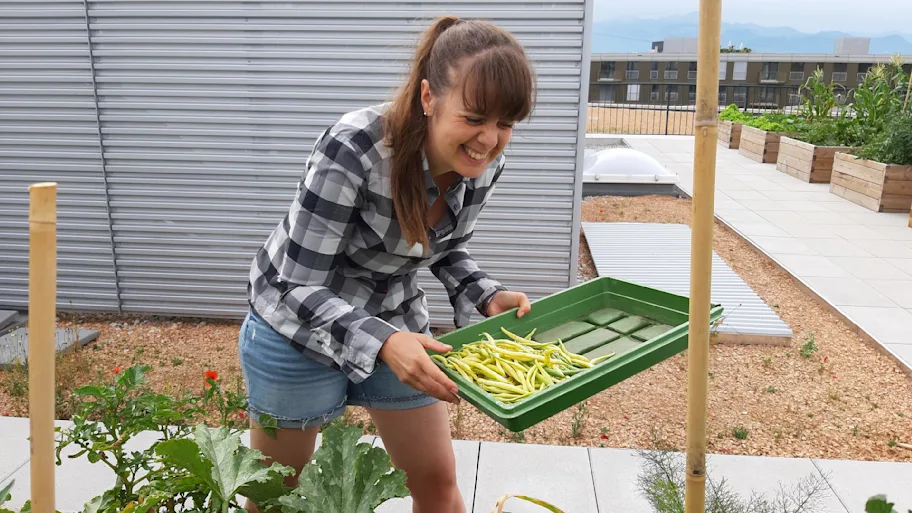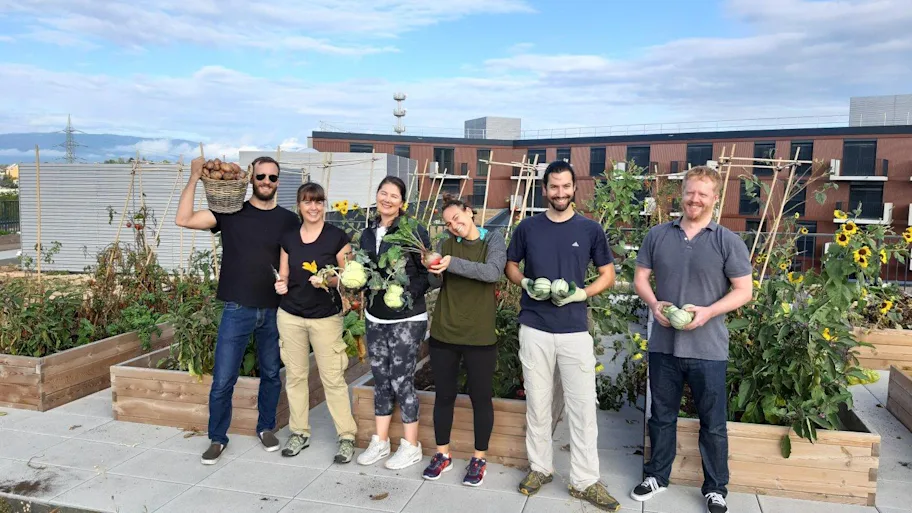
- Science news
- Frontiers news
- Frontiers’ volunteers: “I learnt to use a hoe like a pro!”
Frontiers’ volunteers: “I learnt to use a hoe like a pro!”
This week, we talk to product manager William de Filippo, about the time he took out of his day-to-day work to volunteer with Volontaire montagne, an organization that offers support to the people, the towns, and institutions in Switzerland's mountainous regions.

William and team preparing for a day's hard work preparing grazing pastures
What is your role at Frontiers?
“I have been a product manager at Frontiers since September 2019. My key area of responsibility is developing our peer review platform, specifically around the editorial and reviewer assignments phase, as well as parts of our accounting platform. I work with a great team with a mix of talents and skills; software engineers, QA engineers, architects, designers. My main responsibility is to communicate what we need to do next, agree our priorities, and maximize value creation for our end users. The challenge is to balance all the distinct interests and requirements of different users, to analyze their needs, and design a strategy that is most effective to satisfy those needs.”
What's your background and what are you interests?
“I obtained an MSc in Software Engineering from the Politecnico di Milano in 2008. Since then I have worked for organizations, including Accenture and Nestlé. My roles have ranged from software engineering, to business analysis, project management, and product and product portfolio management - mostly working with ecommerce and CRM systems.
“I am passionate about digital technologies, as well as open-air activities with my family, particularly camping, which has been particularly satisfying since I moved to Switzerland back in 2013.”
What does the organization you volunteered for do?
“Volontaire montagne works with people who wish to volunteer to help look after and support mountain regions. Activities include maintaining grazing fields, construction, and infrastructure rehabilitation. Living and workspaces, as well as leisure and relaxing activities, can only be offered in these areas if they are looked after. The organization offers support to the people, the towns, and institutions in these areas through this voluntary service.”

The removal and stacking of invasive thistles and other plants in action
Why did you choose this particular placement opportunity?
“Our mission was to help enhance grazing pastures by removing invasive plants, such as thistles, which grow very aggressively in these areas and stop cows grazing. It is both a rewarding and important job and helps to make sure the area can remain a sustainable resource for local agriculture.
“As well as this, after so much time working from home and talking to my colleagues from behind a screen, I thought this placement was a great opportunity to spend a day with some of the people I work with each day, but rarely get to see in person under the circumstances.
“The hard work, together with moments of conviviality we enjoyed over lunch with the organizers, contributed to a very satisfying and great team building day. We were able to form new bonds, while knowing that our work was useful to a community that strongly relies on volunteer work to sustain themselves.”
Why did you decide to take part in the volunteering program?
“I think that the desire for giving back to the community is becoming more and more widespread. When presented with a concrete opportunity to contribute by Frontiers, I felt inspired to participate.
“I believe that the world will have a better future if we all help each other, and this program is perfect for doing my part. I intend to participate to other placements in the future.”

William de Filippo after a hard day's work in the fields
Were you able to draw on your professional experience to contribute? If so, how?
“Part of my job is to organize day to day activities with my team, and act like the tissue that connects all the different parts. Participating in and organizing a day like this involves taking many micro-decisions and enabling good communication between participants; how will we get there? Who has a car? Who does not have working gloves? What date is the ideal date for all the participants, taking into consideration their life and duties? I was able to use my experience to help organize the elements of the day like these.”
What did you learn from the experience?
“Through our conversations with our hosts we learned about how they live: what challenges they face each day, an idea of how their economic model works, and how they work to sustain themselves and their way of live. And I learnt to use a hoe like a pro!”






